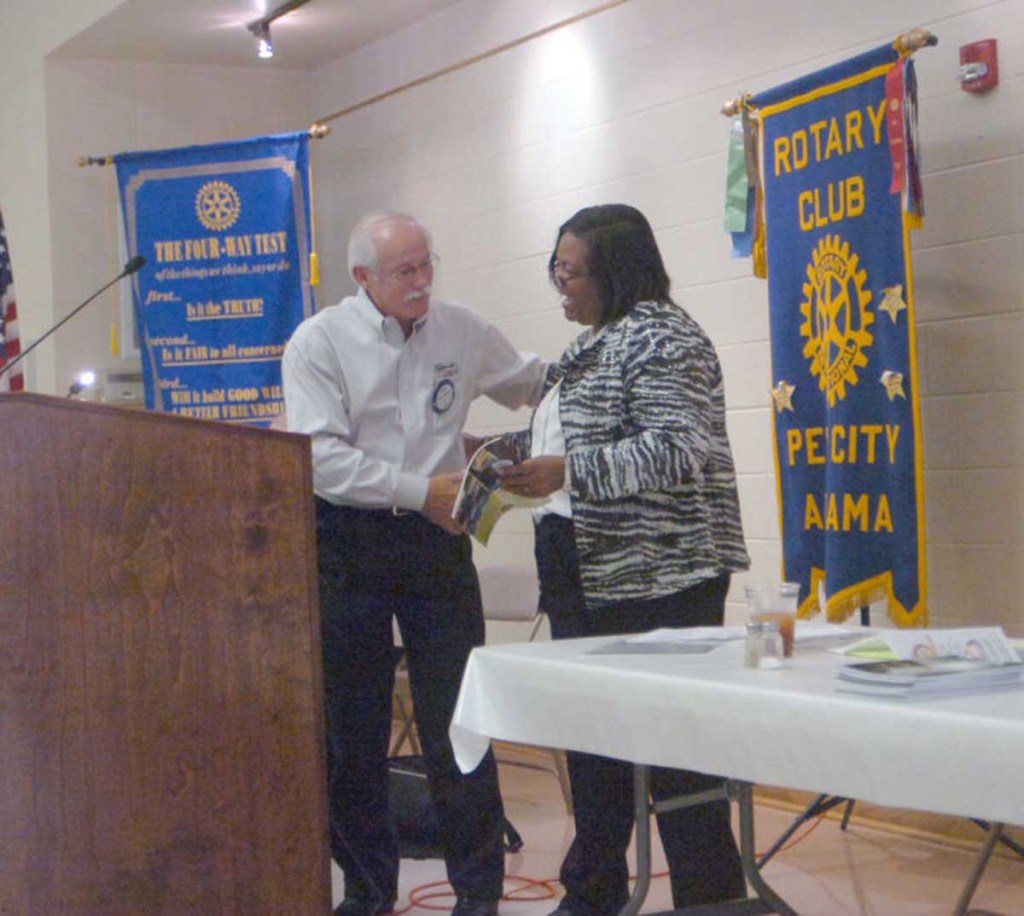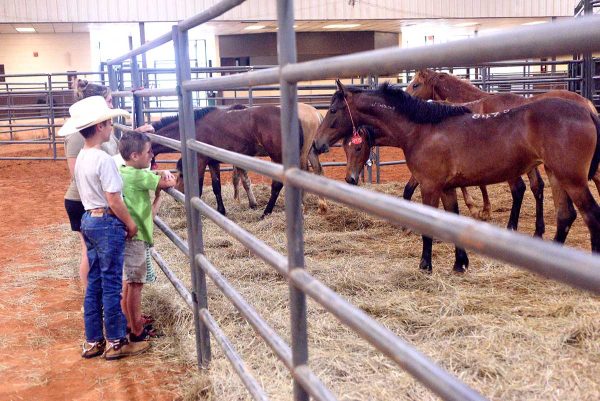Veterans return with unseen scars, as well
Published 7:20 am Wednesday, October 26, 2011

- Rotary Club president Eddie Gilreath greets social worker Annie Brown following her program about “veteran grief.”
Grief experienced by military veterans is often more complicated than that experienced by people who have never served in the armed forces, according to a local social worker.
“What veterans go through has often just not been understood,” Annie Brown said Tuesday to members of the Pell City Rotary Club. “These people are in our communities, our families, and our homes. We need to be able to communicate with them and give back for their service.”
A licensed social worker with Lakeside Hospice, Brown said she has seen firsthand the different kinds of grief veterans deal with through her work with the Department of Veterans Affairs’ Vet-to-Vet Program.
Grief isn’t always related to death, she told Rotarians, and veterans of different conflicts many times suffer different types of grief.
Anticipatory grief often follows a veteran learning that he or she has been diagnosed with a war-related terminal illness. “This is a blow because they may have just come back, and they’ve already had a lot of losses,” Brown said. “It does, however, allow them and their families a little time to get their thoughts and plans together.”
Sudden grief doesn’t allow that. “Our children go overseas, and sometimes they don’t come back. That can be extremely hard for the parents, wives, and children left at home. It can be too much for an individual to be able to process.”
It can also involve veterans having to suddenly adjust to such drastic changes as financial losses and unemployment upon their return home from service. “They might come back home to nothing,” Brown said. “They might be a different person from when they went. They may have lost a loved one while they were away, or they may be looking at their own mortality.”
Traumatic grief usually involves a veteran experiencing something violent and “very untimely,” she said. “It puts them in such a shock that they just can’t function. It doesn’t have to be a death. It could be that they’ve lost a leg or are now bedbound or that they are grieving because of the traumatic things they experienced in the war.
“Almost all veterans who have been in combat carry some kind of suffering. Don’t make generalizations about what our veterans went through. Some had good experiences and are proud to have served, while others don’t feel so good about America and how they’ve been treated.”
While World War II veterans were regarded as heroes upon returning home, those of the Korean Conflict often feel forgotten, Brown said. “Some are very sensitive because it was never declared a war, and they feel their service was unappreciated. Many Cold War veterans were exposed to aboveground nuclear tests and have developed mistrust of the government.
“Vietnam veterans, my heart bleeds for them because they were sent to war, and we as Americans failed them by blaming them for things that were out of their control. They came home to hostility and verbal abuse. They were exposed to Agent Orange, and many of them now deal with alcohol and substance abuse and post-traumatic stress disorder.”
Veterans of the Persian Gulf War frequently return home needing medical care because of toxins they were exposed to while serving, she said. “Memory loss, respiratory problems, and ALS are some of the disorders coming back from that war, and research is showing that the psychological toll will be worse than the physical toll for those coming back from Operation Enduring Freedom and Operation Iraqi Freedom.”


